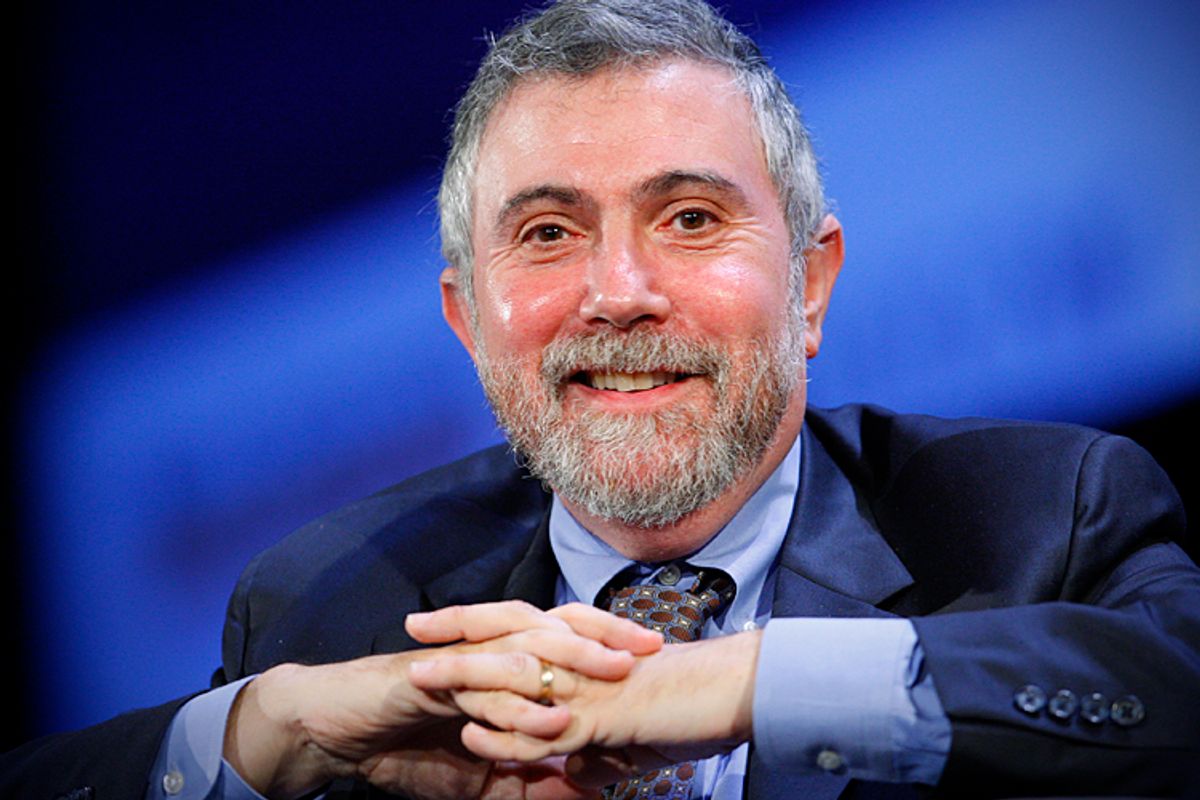In his latest column for the New York Times, award-winning economist and best-selling author Paul Krugman writes on how two studies from the neoliberal International Monetary Fund — one from 2011 and one released just last month — are upending economists' traditional assumptions about the relationship between redistribution and economic growth.
While experts have assumed for much of the past 50 years that policymakers had to strike a balance between redistribution and growth, believing the former depresses the latter while the latter exacerbates the former, Krugman says the IMF's studies call that whole framework into question.
"The first study looked at the historical relationship between inequality and growth, and found that nations with relatively low income inequality do better at achieving sustained economic growth," Krugman writes. "The second, released last month, looked directly at the effect of income redistribution, and found that 'redistribution appears generally benign in terms of its impact on growth.'"
"In short," he continues, "[the] big trade-off doesn’t seem to be a trade-off at all."
As an explanation for how supporters of left-of-center economics can suddenly argue that the U.S. can have its cake (growth) and eat it too (redistribution), Krugman writes that the anti-growth incentives built into any form of redistribution may exist, but that "incentives aren’t the only things that matter."
"Resources matter too," he adds, "and in a highly unequal society, many people don’t have them."
More from Krugman at the New York Times:
Think, in particular, about the ever-popular slogan that we should seek equality of opportunity, not equality of outcomes. That may sound good to people with no idea what life is like for tens of millions of Americans; but for those with any reality sense, it’s a cruel joke. Almost 40 percent of American children live in poverty or near-poverty. Do you really think they have the same access to education and jobs as the children of the affluent?
[...]
Now, I don’t want to claim that addressing income inequality would help everyone. The very affluent would lose more from higher taxes than they gained from better economic growth. But it’s pretty clear that taking on inequality would be good, not just for the poor, but for the middle class (sorry, Senator Santorum).
In short, what’s good for the 1 percent isn’t good for America. And we don’t have to keep living in a new Gilded Age if we don’t want to.



Shares